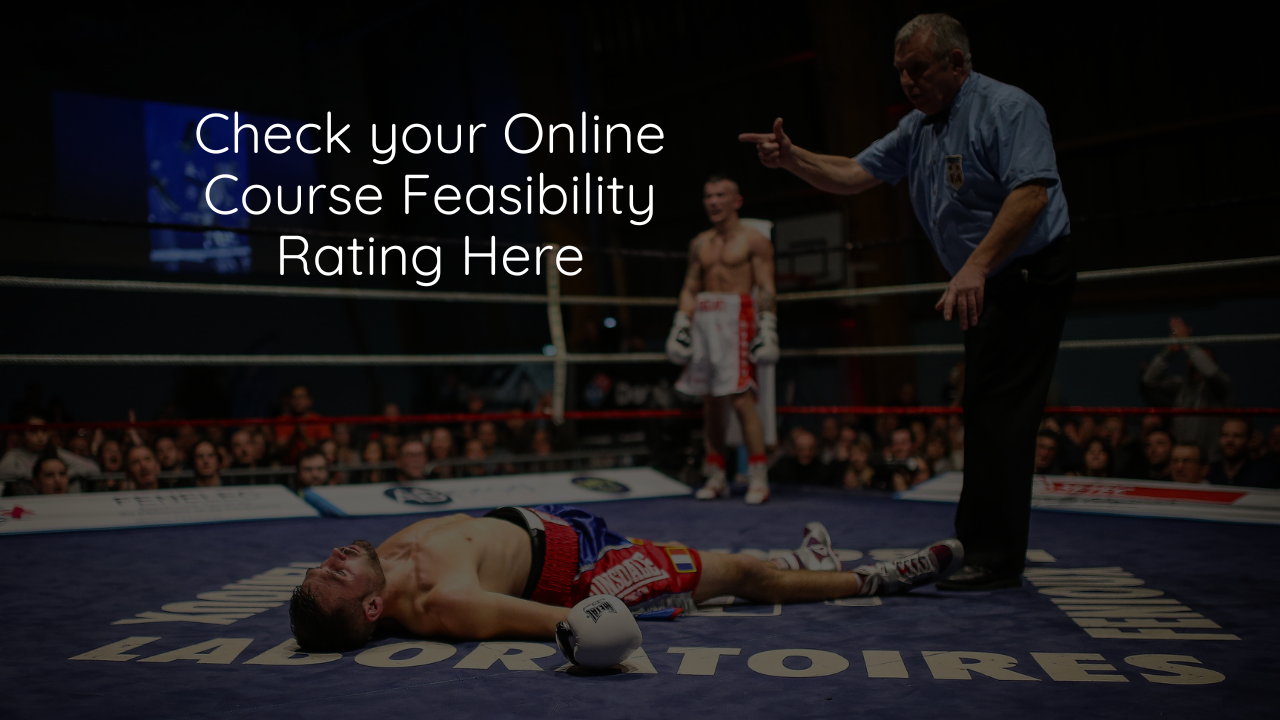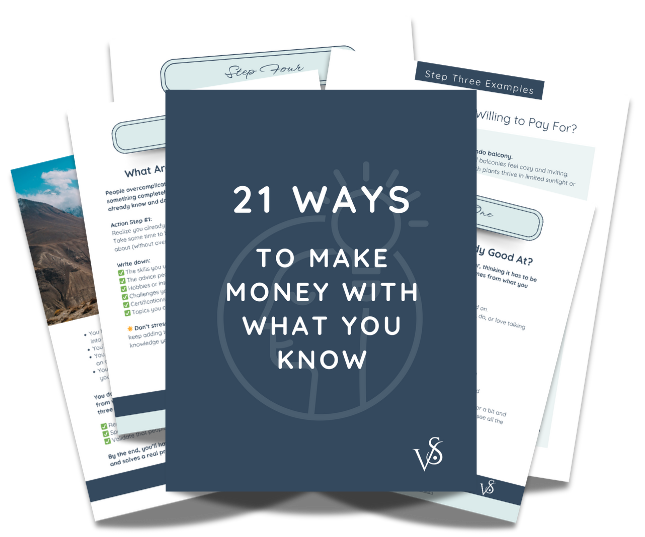How You Know if Your Online Course is Going to Be Successful...Before You Spend Hours Creating
Jan 10, 2025
So, you have an idea for an online course that you’re super excited about. Before you spend the next few months filming, you should make sure your idea has what it takes to succeed.
That’s where an Online Course Feasibility Rating comes in.
This rating score is your reality check in whether your course idea is ready to launch or if it needs a little more love to stand out in the market.
Scoring System: Online Course Idea Feasibility Rating Scorecard
For each of the below questions, rate each criterion on a scale from 1 to 5:
1 = Low feasibility
5 = High feasibility
Add up the scores at the end for a total feasibility score out of 30 points.
Ready? Begin...
1. How easily can you develop the course content?
- Do you already have expertise in this area?
1 Requires significant research or new skills
3 Moderately challenging but manageable
5 Effortless, based on existing skills and knowledge
2. What are your financial requirements for creating the course? (hosting platform, filming, marketing)
- Are there ways to minimize costs?
1 High upfront costs
3 Moderate investment required
5 Minimal to no upfront costs
3. Can the course be sold repeatedly without much additional effort?
- Does it have the potential for passive income?
1 Highly dependent on live delivery or one-off sales
3 Moderate potential for automation
5 Fully scalable with automation
4. Is there a large enough audience interested in this topic?
- How niche is the idea?
1 Small, niche audience
3 Moderate audience size
5 Large, broad appeal
5. How competitive is this niche?
- Can you stand out with your unique approach?
1 Highly saturated market
3 Moderate competition
5 Limited competition or unique angle
6. How quickly can you launch the course?
- Are there external factors that might delay progress?
1 More than six months required
3 Three to six months to launch
5 Less than three months to launch
Total Feasibility Score
Add up the scores for all criteria.
25–30 Highly Feasible
18–24 Feasible with some challenges
12–17 Moderately Feasible, reconsider
6–11 Not Feasible
Next Steps
- Highly Feasible (25–30): Move forward with developing this course.
- Feasible with Challenges (18–24): Identify and address obstacles before proceeding.
- Moderately Feasible (12–17): Reevaluate the idea or adjust your approach.
- Not Feasible (6–11): Explore alternative course ideas.
Is Your Score a Low Feasibility?
If your course idea gets a low feasibility score, it’s not the end! Think of it as valuable feedback to help you refine and improve. Start by taking a closer look at your target audience and getting clear on who your course is for by conducting surveys and engaging in forums. Validating your idea is possibly by testing with a freebie, a poll, or a mini version of your course to gauge interest. Pre-selling your course is also great way to confirm demand before fully committing.
Next, consider what makes your course stand out? Whether it’s your teaching style, the specific problem you solve, or a unique framework, emphasize what makes your offer special.
If your idea feels too broad, consider niching down to solve one specific problem for one specific group of people. Specialized courses often perform better than generalized ones.
Improving your market positioning is another important step. Polish your messaging and branding to make your course irresistible. If you’re new, build credibility by offering a beta version of your course for free or at a discount, and use the feedback and results to improve your offer.
Review your pricing strategy. Sometimes a high price suggests exclusivity, while a lower price makes it more accessible. Consider offering tiered pricing or bonuses to create more value.
Finally, don’t give up! Every successful course creator started somewhere, and a low feasibility score is just a sign to tweak your approach, not abandon your dream. Treat this as an opportunity to learn, grow, and create a course your audience will love.
